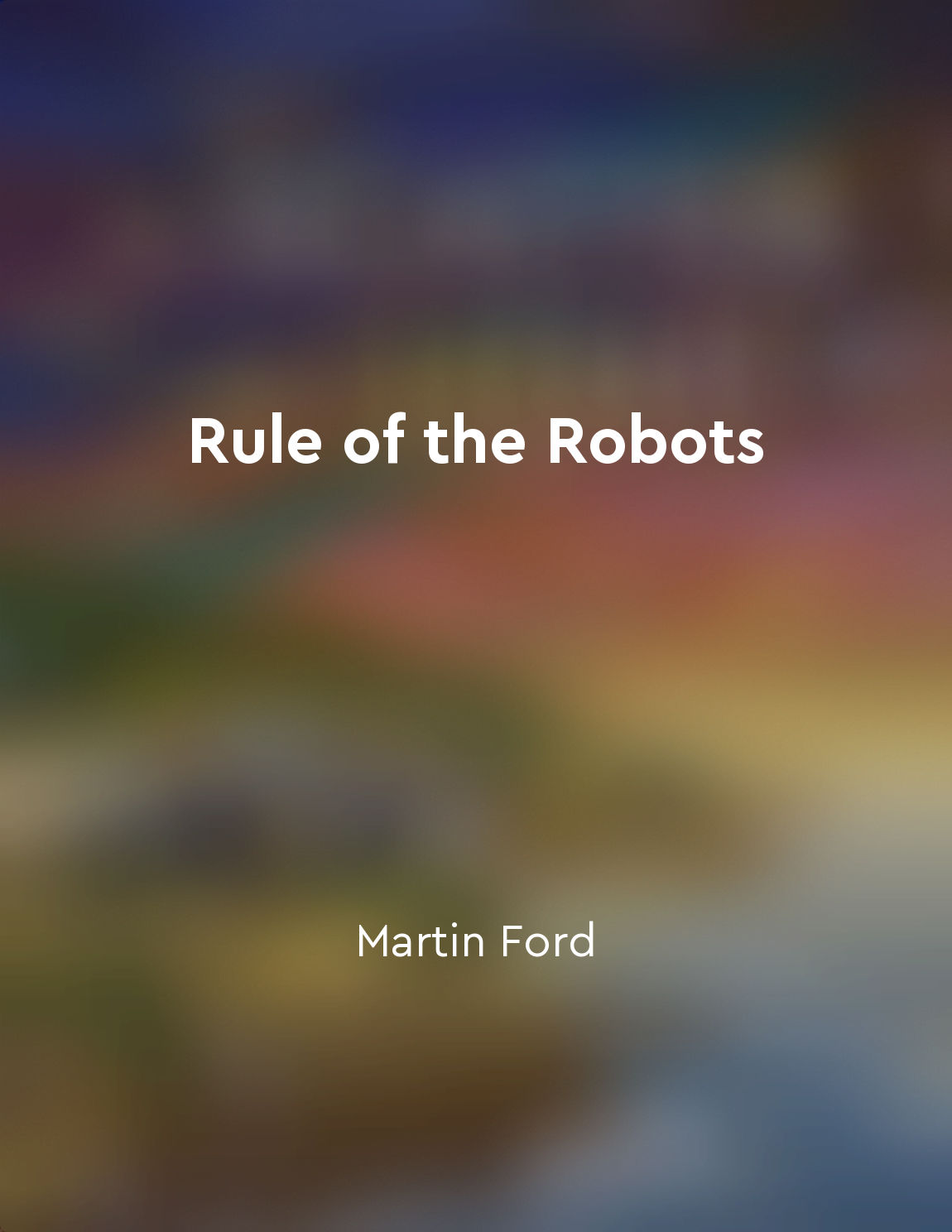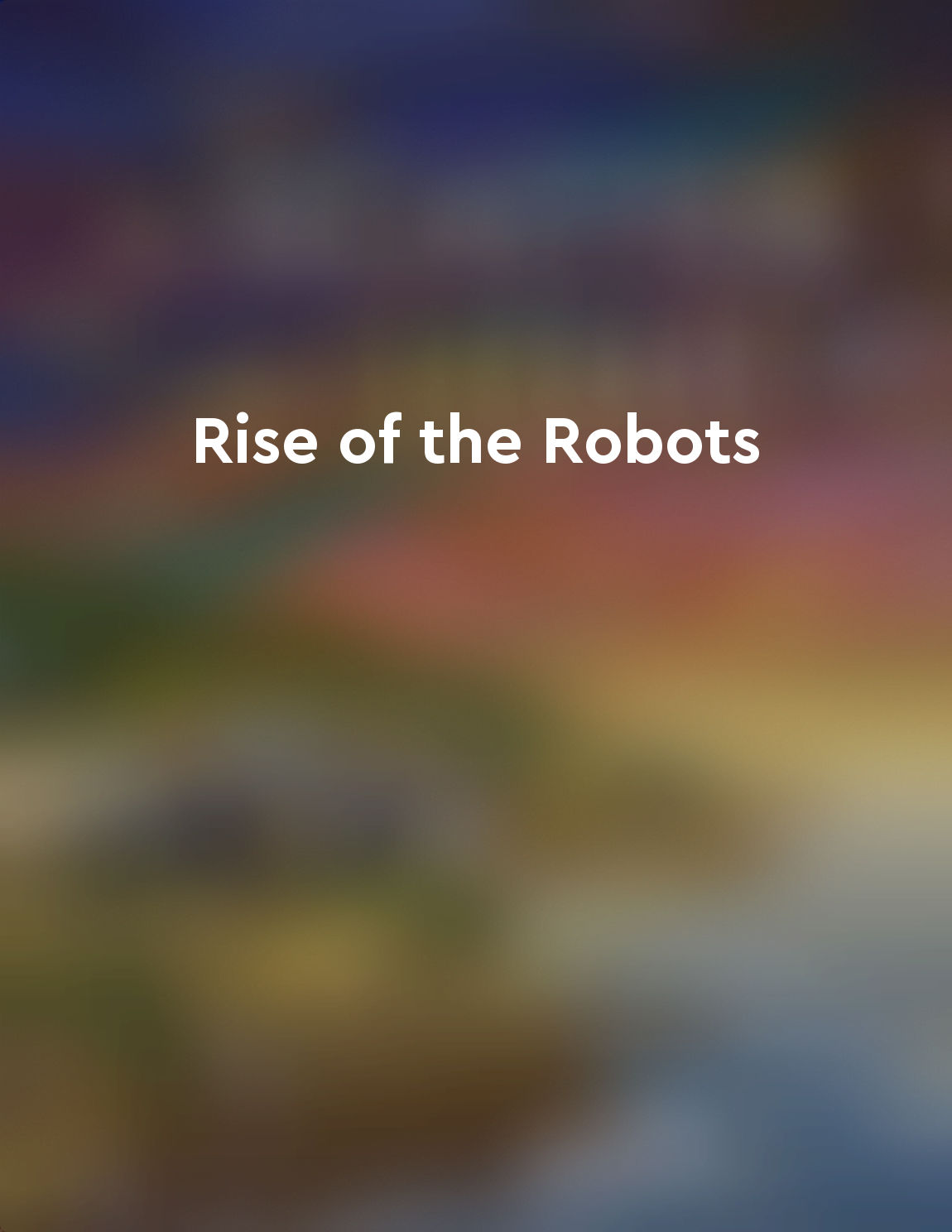Public policy needs to address the challenges of automation from "summary" of Race Against the Machine by Erik Brynjolfsson,Andrew McAfee
Public policy is a critical tool for shaping the future of work in an era of rapid technological change. As automation continues to advance, policymakers must grapple with the challenges it poses to the workforce. The rise of machines threatens to displace workers and exacerbate inequality, creating a need for thoughtful and proactive policy responses. One key challenge that policymakers must address is the potential for automation to displace large numbers of workers. As machines become increasingly capable of performing a wide range of tasks, many jobs that were once performed by humans are at risk of being automated. This trend has the potential to leave many workers without employment opportunities, leading to economic hardship and social unrest. In addition to displacement, automation also has the potential to exacerbate existing inequalities in the workforce. As machines take over routine tasks, workers who are able to adapt and learn new skills will be in high demand, while those who are unable to keep up will be left behind. This could widen the gap between those who have the resources and opportunities to thrive in a technologically advanced economy and those who do not. To address these challenges, policymakers must consider a range of policy options. One possible approach is to invest in education and training programs that equip workers with the skills they need to succeed in a changing economy. By providing workers with the tools they need to adapt to technological change, policymakers can help ensure that the benefits of automation are shared more equitably. Another key policy consideration is the need to ensure that workers are able to share in the gains from automation. As machines take on more tasks, productivity is likely to increase, leading to greater wealth and prosperity. However, if these gains are concentrated in the hands of a few, the benefits of automation may not be fully realized. Policymakers must therefore explore ways to ensure that workers are able to benefit from the increased productivity that automation brings.- The challenges posed by automation require thoughtful and proactive policy responses. By investing in education and training, ensuring that workers can share in the gains from automation, and addressing the potential for displacement, policymakers can help shape a future of work that is more equitable and sustainable. It is crucial that policymakers act now to ensure that the benefits of automation are shared widely and that workers are prepared for the changes that lie ahead.
Similar Posts
Both China and the US have unique strengths and weaknesses in the AI race
In the race for AI dominance, China and the United States each bring their own set of strengths and weaknesses to the table. Ch...

Technology has the potential to benefit society as a whole, not just a select few
Jaron Lanier argues that technology has the power to improve the lives of everyone in society, rather than just a privileged fe...

Job security is no longer guaranteed in a world of automation
In a world where technology is advancing at an unprecedented pace, the traditional notion of job security is rapidly becoming o...

Robots are capable of performing tasks with greater efficiency and precision than humans
In today's world, robots have proven themselves to be incredibly efficient and precise in performing a wide range of tasks. The...
Automation and artificial intelligence are transforming the job market
The rapid advancement of automation and artificial intelligence has fundamentally altered the landscape of the job market. Trad...

Education and training will be crucial in preparing for the future of work
In the rapidly evolving landscape of work, it is becoming increasingly clear that the skills demanded by employers are changing...

Machines are capable of learning
In the world of artificial intelligence, there is a fundamental shift taking place. It is a transformation that is redefining t...

Humans must find ways to work alongside robots rather than being replaced by them
The central idea put forth in 'Rule of the Robots' is that humans must adapt to the increasing presence of robots in the workfo...
Technology is a tool, not a threat if used wisely
The central idea we must keep in mind when discussing the impact of technology is that it is a tool - a powerful tool, to be su...
The future belongs to those who can harness the power of technology
In our rapidly evolving digital age, the ability to effectively utilize technology has become the key determinant of success an...

